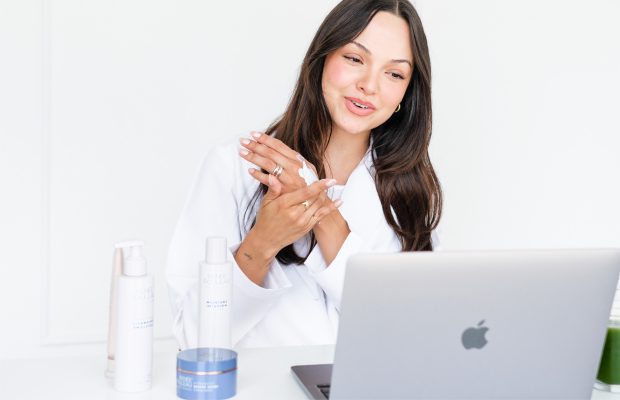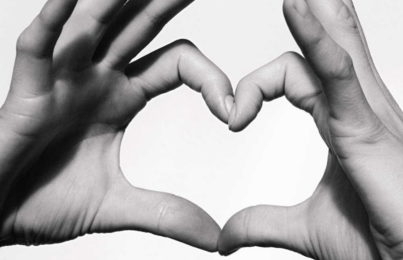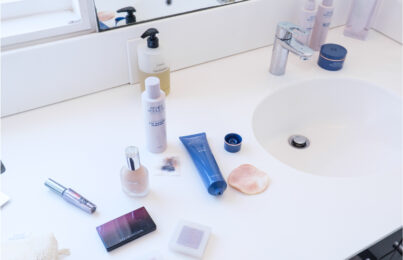Most people know that dermatologists and estheticians aren’t the same, but they don’t know what exactly makes them different. And, what’s more, they’re unsure of which one they should see to address their specific skin concerns.
In this post, I’ll take you through the biggest differences between dermatologists and estheticians, explaining how their approaches to treating skin might differ and why you can benefit from both! (Keep in mind that I’ve been an esthetician for over 30 years, so I know that side of the skincare industry in and out. Perhaps my information is a bit biased, but I’m only sharing what I know to be true based on my experience.)
The Difference Between Dermatologists and Estheticians
The main difference between a dermatologist and an esthetician is that a dermatologist is a medical doctor. They’re trained to treat a variety of skin diseases and conditions, and they can prescribe medications in the form of topical and oral drugs. An esthetician, on the other hand, offers non-prescription solutions—things like facials, skincare products, and nutritional advice.
Here are three major differences:
- The licensing requirements are different. An esthetician is in school for anywhere from three to nine months (depending on the state) whereas a doctor is in school studying for years.
- A dermatologist can write prescriptions. An esthetician, since they’re not a medical professional, can’t.
- A dermatologist can perform injections like Botox and fillers. An esthetician can’t under their license.
- Both dermatologists and estheticians can perform professional treatments such as chemical peels. Generally speaking, though, dermatologists can perform more aggressive treatments than estheticians due to licensing and the fact that they’re being performed under the supervision of a doctor.
Note: Not all dermatologists or estheticians are the same. This is generalized information based on what I know to be true.
A Dermatologist Can Prescribe Medication
There are times when the use of prescription medication is necessary to treat certain skin conditions. Chronic rosacea, severe breakouts, skin rashes, and allergies are all examples of conditions that are often best treated with medication. In these cases, I recommend seeing a dermatologist, which is why I’ve referred some of my clients to dermatologists in the past.
With that said, you may still benefit from seeing an esthetician, too. Especially since, once you go off of certain prescription medications, the condition can come back. It can be helpful to play detective (an esthetician can help you do that) to get to the root of the problem and to manage it long-term using the appropriate skincare routine.
An Esthetician Will Spend More Time With You Than a Dermatologist
If you’re scheduling a professional treatment with an esthetician, such as a facial, your face-to-face time will usually be around 75-90 minutes. By contrast, face-to-face time with a dermatologist is usually anywhere from 10-20 minutes. Time is definitely on your side with an esthetician. You’ll have plenty of time to share your skin history and concerns. From there, an esthetician can piece together a personalized routine and unique approach for desired results.
An Esthetician Will Be More Knowledgeable About Your Skincare Routine
As one of my dermatologist colleagues said, “I was trained in treating diseases of the skin. When it comes to which products are best, what my patient’s skincare routine should look like, and when to change up their products, I refer them to you.”
Estheticians are very familiar with skincare ingredients and products. They can guide you towards the right products to use and at what time, teaching you how to enhance your skin at home. They can also teach you which products to use to help manage the side effects of certain medications a dermatologist might prescribe. A good esthetician can go into great detail and provide you with all the information you need to achieve your desired result.
For example, I had a client whose skin was dry, red, and inflamed. She thought she might have rosacea, so she was considering seeing a dermatologist. However, she consulted me first. During our conversation, I discovered she was using a harsh, high-foaming cleanser followed by an organic moisturizer that was loaded with essential oils. The cleanser was stripping her skin and damaging her moisture barrier. Then, the essential oils, which are known to cause issues if used in high concentrations, were creating irritation.
The combination was setting off an inflammation response. It wasn’t rosacea at all! Since she was a Skin Type 9, I set her up with a gentle skincare routine. I followed up with her regularly, and within a month, her redness had calmed down significantly.
Both Dermatologists and Estheticians Can Offer Effective Acne Solutions
Make no mistake: you can benefit from seeing both a dermatologist and an esthetician if you’re struggling with breakouts. While their treatment approaches will differ, they can each offer effective solutions. For a dermatologist, that might mean prescription medication or cortisone injections for cystic breakouts. For estheticians, that might mean product recommendations and deep pore-cleaning facials.
As an esthetician, trust me when I say that deep pore-cleaning facials can make an incredible improvement in breakout-prone skin types. Manually extracting pore blockages that lead to bumps and breakouts will help make the skin feel smooth and calm, and this needs to happen over the course of multiple sessions. Estheticians are the ones that perform facials, but oftentimes, they work within a dermatologist’s office.
The Bottom Line
Both dermatologists and estheticians can offer solutions for your skin concerns. There is no right or wrong answer when it comes to which one you should see. Even though I’m an esthetician, and I’ve worked with skin for over 30 years, I regularly see a dermatologist for skin checks and more! As I said before, no matter who you are or what skin concerns you have, you can benefit from both! In fact, seeing both a dermatologist and an esthetician can complement your skin based on the skillset each provides.
Next, find out the best chemical peel for you, according to your skin type.
Celebrity Esthetician & Skincare Expert
As an esthetician trained in cosmetic chemistry, Renée Rouleau has spent 35 years researching skin, educating her audience, and building an award-winning line of products. Her hands-on experience as an esthetician and trusted skin care expert has created a real-world solution — products that are formulated for nine different types of skin so your face will get exactly what it needs to look and feel its best. Trusted by celebrities, editors, bloggers, and skincare obsessives around the globe, her vast real-world knowledge and constant research are why Marie Claire calls her “the most passionate skin practitioner we know.”




Comments:
My son has quite a bad problem with blackheads. I’ve tried many blackhead scrubs for him. Also I have tried warm wash cloth followed by extractor tool. Neither has been helping. Could a dermatologist or esthatician help him?
Posted By: Sonya |
Yes, a deep pore cleansing facial by an esthetician would be really helpful in clearing out his blackheads. You can also read these tips to reduce blackheads.
Posted By: Renée Rouleau |
I’m so tired of estheticians dogging dermatologists. They are doctors. Doctors with many years of education and usually in the top five percent of their graduating class. I actually know very few estheticians who even have degrees. Ridiculous.
Posted By: Jennifer |
When it comes to satisfying the needs of a patient’s skin, both estheticians and doctors have their place.
Posted By: Renée Rouleau |
Hello, i have a question, i have these hard pimple like bumps on my face they won’t go away, its been years. I’m starting to get more, i don’t know what to do or what they are, maybe a microdermabrasion or an acid peel will help. These bumps don’t hurt, i can’t pop them, I’ve poked at one and it bleeds. I’m out of ideas please help, thank you.
Posted By: Melissa |
My guess is that you have skin growths (like sebaceous hyperplasia or actinic keratoses) that come with age. Read this post to learn more about how to get rid of them.
Posted By: Renée Rouleau |
Hi, I’m a high school student, and currently trying to decide on the path I would like to go career wise. I was just wondering. Did you ever consider dermatology? Why did you pick esthetics? Did your income affect your choice in any way?
Posted By: Averi Mazur |
I never considered being a dermatologist. I’m too creative and not that much of a bookworm.
Posted By: Renée Rouleau |
First of all Renee congratulations on your career, you’re my inspiration as an esthetician. I will love to enhance my aesthetics education. I’ve been struggling to find some one that will hire an esthetician with out experience. What kind of advice can you give me to be where your at, to become an amazing esthetician like your self. Thank you
Posted By: Angela Meza |
Hello Angela! Have you read my blog posts exclusively for estheticians? You can read them here https://blog.reneerouleau.com/renees-thoughts-tips/esthetician-tips/ As for someone who hires without experience, you just have to find someone who will.
Posted By: Renée Rouleau |
I admire your work and knowledge on certain subjects you discuss and educate the public.
However, this article is very misguided… A dermatologist knows much more about skin and the underlying problems of certain skin related conditions, than an esthetician. And the difference relies within education itself, 10+ years of schooling does not equal. trade school/state exam. In medicine we don’t play “detective” we explore with science the different causes of a problem. An esthetician can’t perform surgery or detect an underlying thyroid problem that is having an effect on the skin. Please inform yourself more about Dermatology as a medical science and not as an option to a facial. Dermatologists are doctors not trade school graduates.
Have a wonderful and successful year 🙂
Posted By: Raysa |
Thank you for your perspective. This is excellent info to share with my readers. I wish more people had a better experience with a dermatologist getting to the underlying cause of certain skin problems and putting a good course of action into place that gives them the positive results they seek.
Posted By: Renée Rouleau |
If the prescription didn’t give you the results then you should try to use high-quality products like ours. Look at our nine skin types here https://www.reneerouleau.com/pages/skin-types Sounds like you would be a skin type #9. This routine has gentle exfoliation with our AHA Smoothing Serum 10% which will help with the bumps.
Posted By: Renée Rouleau |
This is a great article, I feel that dermatologists can be a great option for certain ailments…but not particularly skincare needs. I noticed I always feel rushed or that I am not getting a treatment plan tailored to my skin’s needs (which are many I might add lol).
P.S. How have I just not found this website, what a great resource!
Posted By: ~B |
Hello, this is more question not related to this particular blog entry but I’m hoping you may shed some light on this. I am 36 and for some reason, I have always had problems with progressing numbers of freckles and moles for as long as I can remember even though I am careful to use sunscreen. Most recently, within the last 3 years, I have also noticed ugly brown spots appearing on my face. What I don’t get is, why this would happen to someone who is diligent about using sunblock but not to others who don’t bother with it? I can’t remember when I consciously started using moisturizer with sunblock but I’m almost positive my skin would be worse than it is now if I haven’t been/don’t. My sisters only really developed brown spots after they started having kids, which I don’t, and they don’t really have too many moles or freckles as I do.
Why is this? I don’t expose myself to the sun anymore than the average person and yet, it seems some of them are never affected.
Posted By: kyung |
Hello Kyung,
The reason why you’re getting brown spots and freckles, yet haven’t had more sun damage than the average person, is simply because that’s just what your skin wants to do. You have more melanin activity than others so it’s just simply genetics for you. It’s not a reflection of how much sun you have had. I would suggest reading my blog posts in the “brown spots” category here > https://blog.reneerouleau.com/ I have a lot of recommendations for what to do to fade them and prevent them. Renee
Posted By: Renée Rouleau |
Many diseases reflects on the skin, which dermatologist knows how to treat and estheticians dont
Posted By: Marisol |